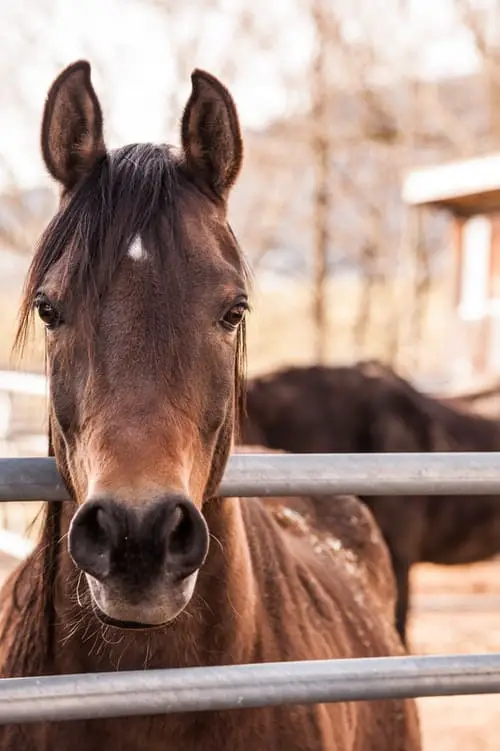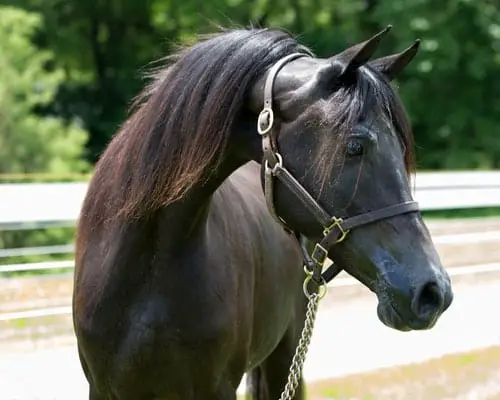Admittedly, becoming a horse owner is not only an enjoyable experience but also one that can be considered rewarding. A horse, to its owner, can serve the purpose of pleasure riding and can be a wonderful companion as a pet. To some owners, horses are considered teammates and therapist.
So how do you provide basic horse care to your horse? Taking care of a horse is not an easy responsibility. Not only is it expensive but a significant amount of time and effort is required. It is a long-term commitment and being a horse owner requires you to provide your horse with the necessities it needs to stay healthy. Where unsure, you should consult an equine professional to ensure the best care for your horse.
This article takes you through the basics of good horse care. From learning how to feed, house, groom, and care for your horse, the guidelines and tips clearly outlined here in-depth your horse receives the best care.
Let’s look further into three main areas of caring for your horse.
General Horse Care
-
Feed
Horses have evolved over the years. This evolutionary phase brought about a lot of changes, one of which involves their diet. Horses are designed to feed all through the day; hence they are referred to as “trickle feeders”. It is essential that horses have access to a sufficient and consistent supply of good feed such as hay or chaff to ensure they are kept in good body condition.
Horses that are frequently put to work may lose body condition if there is not enough quality pasture. But lands with quality pasture are hard to come by and a luxury only afforded by few horse owners. As such, the alternative to ensuring your horse gets all he needs is to feed him supplementary. This supplementary diet must be based on forage. Consulting a certified veterinarian for feeds appropriate for your horse is highly recommended.
You must ensure your horse consumes about 2% of his body weight in forage every day In situations where your horse is restricted from some diets that would result in the amount of pasture he takes, it’s highly advised you provide hay of high quality to ensure he meets his required forage levels.
There are breeds of horses that can maintain a perfect body condition and energy levels by surviving alone on forage. It is advised you add a multivitamin supplement to ensure a perfect diet. When pasture is cut, dried up and stored as hay, the vitamins degrade with time. This is where the multivitamins have an important role to play as it ensures all the vitamins and minerals needed by the horse is adequately provided. But should your horse be in need of more calories to enhance performance or to maintain a certain weight, providing fortified grain might be a perfect option?
-
Water
The availability of water, clean water, is non-negotiable in a horse’s basic care routine. Keeping your horse hydrated is very important to your horse’s overall wellbeing. Horses consume a lot of water and in hot weather could consume as much as 20-50 liters every day while this amount may reduce in the cold weather.
Horses that sweat heavily or have a poor drinking habit, a daily supply of electrolyte supplement is a good way to replenish minerals that have been lost in the sweat. It also encourages the horse to drink.
Several water-conveying methods can be employed to ensure consistent water supply to the horses. These methods include dams, self-filling troughs, and buckets. Regular and daily checkups must be conducted on the water method you decide to employ. This is to ensure they are re-filled when necessary and cleaned when they start getting dirty. Although buckets are not highly recommended as they can be kicked over by the horses.
-
Shelter
Horses are considered to be hardy species that regulate their own body temperature in order to withstand both heat and cold. However, this does not negate the importance of shelter. Horses need safe and sturdy shelters to shield them from extremes like wind, rain, sun, and other unfavorable elements.
Shelter does not necessarily translate to a stall. Trees and walk-in stables can also be regarded as a suitable shelter. Horses are built to roam and it can be detrimental if they are kept standing for too long or bundled in a tight stall. Hence, the amount of time and space your horse has to roam, the better.
Properly designing a barn or shelter for your horse is an essential part of good basic horse care and safety. From determining the ideal size to choosing the appropriate flooring options and the height of the barn/stable ceiling, every detail is essential. An emergency run-in shelter should also be designed to provide the horse a place to shelter in case of emergency weather conditions.
To protect the horse from cold weather, a waterproof rug should be used. But regular checkup is advised to be certain it’s not rubbing or there are no leaks.
General Health Care
General health care is essential to ensuring your horse is in optimal condition. A horse must be properly taken care of from trimming its hooves, cleaning his teeth and worming your horse is all part of general health care. Each has been carefully explained below.
-
Feet
To prevent your horse’s hooves from chipping or becoming too long, a Farrier needs to be employed to trim the hooves. This is will prevent the horse from feeling uncomfortable. Although shoes are necessary, they are only needed if the horse needs to be ridden on rocky surfaces. This will ensure the horse doesn’t hurt his hooves.
-
Teeth
A horse’s dental health shouldn’t be ignored. Dental care must be provided by a horse dentist at least once a year. Failure to do this could result in mouth injuries as a result of the teeth becoming sharp. For young horses under the age of 5, a dental checkup every 6 months is advised to ensure good dental health.
-
Worming
Worms can build up in the stomach and intestines if your horse is not wormed regularly. This can be done with a worming paste. This paste should be applied every 4-8 weeks. Please do adhere to the dosage instructions as amounts do vary depending on the breed of horse. Another way of reducing worm contamination is by reducing the manure in the horse’s paddock.
-
Vaccination
Horses are prone to diseases and viruses such as viral respiratory diseases, tetanus and strangle. A part of your horse basic health care routine is to ensure proper vaccination against possible viruses. You should get a professional veterinary doctor who would offer you professional advice against which virus to vaccinate and how often the horse should be vaccinated.
It is highly advised you ensure your horse partake at least in one wellness exam with a certified vet every year, and two annual wellness exams if he is a senior.
-
Monitor Body Condition
A horse’s body condition must be ideal to ensure he is healthy. Your horse shouldn’t be allowed to get too fat or thin as this is not a healthy body condition. You should ensure the ribs of your horse are not visible as it serves as an indicator of how thin your horse is and similarly, a big belly coupled with a crested neck and a round rump serves as an indicator of how fast the horse is.
Your horse’s ideal body condition must not be less than a score of 2. Ribs should be felt, not seen. Horses are at risk of developing laminitis should they get too fat. Laminitis is a hoof disease accompanied by excruciating pain. In extreme cases, it may require ‘putting down’ the horse.
Basic Survival Care
-
Companionship
Regarded as herd animals, horses are more comfortable being in the company of other horses. It doesn’t matter if they are housed in the same paddock or different paddocks. It has been proven that horses are much happier when they can socialize as part of a herd. You run the risk of the horse developing behavioral problems if kept on its own and deprived the company of other horses.
-
Training
Although it is possible and incredibly satisfying to work on your horse by yourself, it is highly advisable to work with a professional and equally reputable trainer to ensure optimal results. It is safer, more productive and takes away a lot of stress involved in doing it all by yourself.
-
Exercise/Space
Exercises are as important to a horse as they are to a human being. They must have enough space to walk and run around. This includes taking the horse out for a ride regularly. If you have no experience in horse riding, it is advised you to attend a pony club or seek professional help from a certified riding instructor.
It is important to purchase the right riding equipment to prevent injuries and properly ensure your safety. You should check in with your local saddler for appropriate advice concerning riding equipment.
Aside from all the basic care tips above, you won’t always have your horse around. This could be a result of old age, incurable ailments or simply because you can’t care for the horse any longer. Should and when that time comes, endeavor to have the horse ‘put down’ by a veterinary doctor. This is much better than having the horse suffer in pain.
In a situation where you can no longer care for it, selling your horse would be the best option. A sale can be done privately or through a public auction. This would afford the horse a chance to get good care.
